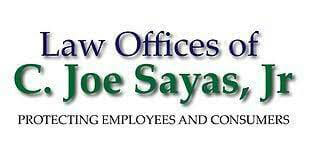Workers entitled to penalty payments from employer for labor violations

Q: I recently resigned from work because I was tired of being shorted on overtime pay, not being given breaks half the time, being made to work before and after my shift with no pay, and not being reimbursed for using my personal vehicle and cellphone for work. Unfortunately, before being hired, we had to sign an agreement that we cannot sue the employer and if we have any claims we had to go to arbitration. This seems unfair. Is there anything else I can do?
A: Even though an arbitration agreement does not allow you to file a claim for wages in court, you may still be able to sue for civil penalties for every employment law violation that applies to you and your co-workers covered under California’s Private Attorney General Act (PAGA).
As previously discussed in this column, arbitration is a procedure to resolve disputes outside the court system. The disputing parties refer the case to a third party (the arbitrator) who makes a decision that is legally binding on both sides. By signing an arbitration agreement, the employee gives up the right to be heard before a judge or a jury and agrees to resolve any claim against the employer before an arbitrator.
This means the employee cannot file a lawsuit in court to resolve the claim. Many studies show that arbitration favors defendants and defense firms that pay the arbitration costs. There is limited opportunity to appeal an arbitrator’s ruling.
However, claims under PAGA are generally exempt from arbitration and may be litigated in court. A PAGA claim is unique to California. This law was enacted to maximize compliance with California’s labor laws. Instead of the State of California pursuing penalties against an employer, the law gives a private citizen the right to recover these penalties. It allows a private citizen to act as an attorney general and seek to stop violations that other employees suffered. What the employees are awarded under PAGA are not the actual lost wages for violations of the law. Instead PAGA says the employer must pay the employee(s) penalties for violations of those laws. Consider the following case reported by the Daily Journal:
Blasa Reyes, Wendy Flores, and Salvador Mendoza worked for Kellermeyer Bergensons Services (KBS), a company that provides cleaning services. The employees were assigned to provide janitorial services for KBS’ customers. The employees filed a consolidated class action and a representative action under PAGA against KBS.
The employees claimed that they were required to work before the start of their shifts and were not paid for those hours worked. They also worked more than 8 hours on some shifts and were not paid for all overtime worked. When they were not provided meal or rest breaks (which could also mean that their breaks were late, shortened or interrupted), they were not paid an extra hour for that meal or rest break. When the employer used their personal cell phones for work, they were not reimbursed for such charges. Mendoza alleged that they were not provided suitable seating even though it was reasonable for their tasks. Lastly, before clocking in, employees had to undergo security checks and Covid-19 related temperature checks, but the time they spent for these activities were not paid by the employer. Each of these violations has an equivalent penalty amount under PAGA and can increase depending on how many times the violations occurred and how many employees were affected.
The employer denied the employees’ claims stating that its timekeeping and meal and rest breaks policies complied with the law; that the company prohibited employees from working off the clock; and that employees were provided seating to use during breaks or when they had down time from cleaning.
Rather than proceed to trial, the parties decided to do a mediation. After “extensive” negotiations, the employer agreed to pay $7,500,000 to resolve the employees’ PAGA claims.
On January 1, 2020, Assembly Bill 51 took effect, prohibiting mandatory arbitration agreements. It prohibits employers from requiring employees, as a condition of employment or continued employment, to waive any right, forum, or procedure when seeking redress for a violation of any California labor law. Even when the law was challenged in court, the Ninth Circuit Court of Appeal, in September 2021, upheld the law, adding that employers also cannot require employees to opt out of arbitration as a condition of employment.
The Law Offices of C. Joe Sayas, Jr. welcomes inquiries about this topic. All inquiries are confidential and at no-cost. You can contact the office at (818) 291-0088 or visit www.joesayaslaw.com. [For more than 25 years, C. Joe Sayas, Jr., Esq. successfully recovered wages and other monetary damages for thousands of employees and consumers. He was named Top Labor & Employment Attorney in California by the Daily Journal, consistently selected as Super Lawyer by the Los Angeles Magazine, and is a past Presidential Awardee for Outstanding Filipino Overseas.]

